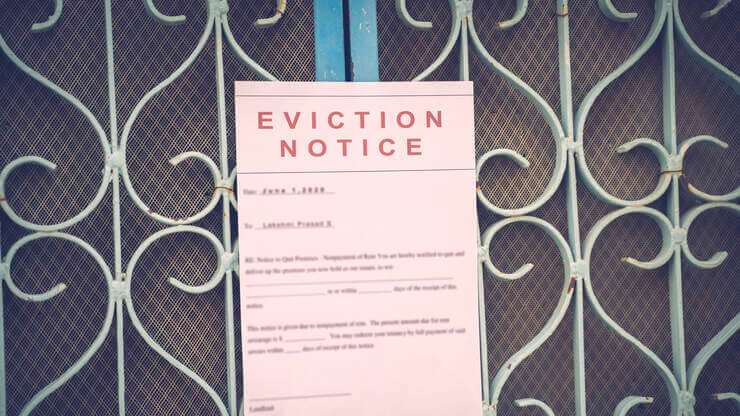Charleston Law celebrates faculty, student excellence at annual Awards Day ceremony
Charleston School of Law hosted its annual Awards Day ceremony on Tuesday.
The Charleston School of Law has partnered with One80 Place and Charleston Pro Bono Legal Services to support those low-income families in our community who are being affected by the current crisis. The clinical partnerships are designed to provide valuable legal training to students while also helping to address unmet legal needs in the community.

The Charleston School of Law Dean Larry Cunningham said, “Charleston School of Law students, faculty, and alumni have played critical roles in helping area tenants facing eviction. Our clinical partnerships with One80 Place and Charleston Pro Bono Legal Services reflect our ongoing commitment to provide comprehensive legal training while helping to address an unmet legal need in the community. We are proud of their work and that of our students in Housing Court.”
According to a White House press release, “… law students across the country dedicated nearly 81,000 hours to provide legal assistance to households and communities.”
“We could not be more inspired that so many dedicated law students and clinical legal programs have risen to the call to provide legal services to hard-pressed families at risk of, too often, devastating evictions,” said Gene Sperling, Senior Advisor to the President and American Rescue Plan Coordinator. “We believe that the increased access to counsel that is being provided by such dedicated law students and clinical programs has prevented eviction, despair and even homelessness for countless families, and that these types of access to justice and court diversion reforms are also critical to the long-term reforms needed to build back to a better and more humane national eviction policy.”
The White House reports the call to action by the Attorney General — along with the distribution of $25-30 billion distributed to well over three million households in need through in the American Rescue Plan Emergency Rental Assistance program by the end of 2021—has led to increased access to counsel and eviction diversion in jurisdictions across the country and kept eviction filing rates below 60% of averages in a typical year.
“The housing crisis is a poverty and economic security issue because of the long-lasting effects that we know evictions have on families,” said Associate Attorney General Vanita Gupta. “It’s a racial and gender justice issue because of the disproportionate effect the spike in evictions will have on women and people of color. That’s why I have encouraged courts to adopt eviction diversion as an essential tool for keeping people in their homes and landlords to access rental assistance during the pandemic.”
According to Deputy Secretary of the Treasury Wally Adeyemo, “Eviction Lab data shows that in the four full months since the end of the eviction moratorium in August, eviction filings have remained below 60% of historical levels. The data shows that this program is working, keeping hundreds of thousands of families safely housed.”
“I asked the legal community to answer the call to help Americans facing eviction,” added Attorney General Merrick Garland. “Law students and lawyers from across the country stepped up to take on cases and assist their clients and communities at a time when our country needed it the most. Making real the promise of equal justice under law remains our urgent and unfinished mission.”
The Charleston School of Law is an ABA-accredited law school nationally recognized for its student-centric culture. Our faculty and staff are committed to preparing you for success both in the classroom and in the legal profession.
Charleston School of Law hosted its annual Awards Day ceremony on Tuesday.
In the coming months, I am anticipating two significant events: I will take my final law school exams and I will work my last day as a law clerk
Presidential Scholars Day was held at the Medical University of South Carolina (MUSC) on Monday evening.